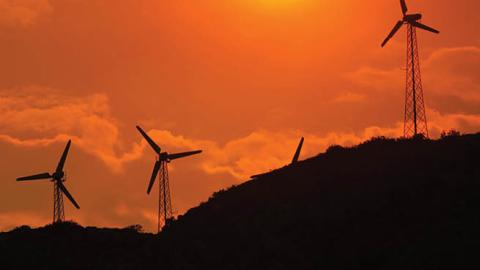Key climate goals of the administration, such as reducing greenhouse gas emissions for the energy and transportation sectors, may be held hostage by China. This is because a shift away from fossil fuels depends on lithium ion batteries. Since China dominates that industry, the administration will need its strategy to mitigate the leverage. While climate envoy John Kerry hopes to approach climate as a “standalone issue,” the fact is geopolitics will shape the environmental choices of the administration, and it will not be able to separate domestic climate policies from China.
Energy storage is the glue within a low carbon economy, which enables greater use of intermittent power sources like wind and solar. The World Economic Forum argues that batteries mark a critical factor to reach the Paris Climate Accord goal of limiting rising temperatures to two degrees celsius. China of course dominates the four stages of the battery supply chain. This is mining, processing, assembly, and recycling.
First, China has now solidified control over the critical minerals of lithium, graphite, cobalt, and nickel. Chinese firms account for about 80 percent of the total global output for raw materials for advanced batteries. Using favorable deals with companies in South America and Australia, Chinese firms control around half of the global lithium production.
China is also the largest source for natural graphite, supplying more than 60 percent over recent years. More than half of the cobalt reserves in the world are in the Democratic Republic of the Congo, while China controls over half of the production in that country. While nickel denotes less of a bottleneck, China is tightening its grip on nickel exports from Indonesia, which carries 30 percent of nickel production in the world.
Second, China has the largest minerals processing industry in the world, an unfriendly process from any environmental standpoints. According to Benchmark Mineral Intelligence, China controls the processing of almost 60 percent of lithium, 65 percent of nickel, and more than 80 percent of cobalt. China also refines 100 percent of spherical graphite.
Third, China leads in battery assembly gigafactories that turn processed minerals into battery packs. Over 130 of the more than 180 gigafactories planned or operational in the world are or will be in China. Just 10 will be in the United States. General Motors said it will build the second battery factory in the United States for a step in the right direction.
Fourth, China dominates battery recycling because it has built up critical infrastructure to recycle lithium ion batteries from consumer electronics. About 70 percent of the lithium ion batteries in the world are recycled in China and South Korea. In less than one decade, 11 million metric tons of lithium ion batteries will reach the end of their service lives.
Indeed, the dominance of China across this supply chain should come as no surprise. China has been strong with identifying and controlling some foundational technology sectors and platforms. Like financial technology or broadband cellular networks, advanced energy technology will be the critical platform. China has a global plan that includes “new energy” as a key area of focus and will not easily watch its advantages melt away. It is also ahistorical to think that China will not use this leverage.
China enacted a law last year allowing the Communist Party to control the exports of products that fall under the broad category of national security. China threatened to cut off the United States from access to supplies with processing rare minerals, as it continues to punish Australia by restricting imports unless Canberra submits to some political demands.
As President Biden himself has said, fresh efforts to position the United States as the “global leader” for manufacturing electric vehicles cannot involve dependence on our most determined competitor. In the eyes of the Communist Party, the United States and China are in a battery race. American efforts could be contested even if there are low global carbon emissions. The United States should treat clean energy technology as a competitive space to avoid such dire dependence on China.
As it starts its supply chain review, the administration should adopt the work done by its predecessor, which identified government investment priorities. The administration faces hard choices. To increase domestic industry, it should address the environmental challenges of processing facilities. Tradeoffs will be necessary. Biden could make progress on his goals, but will take a dose of climate realism and pledge to competitive policies to achieve our independence in battery technology.
Read in The Hill















